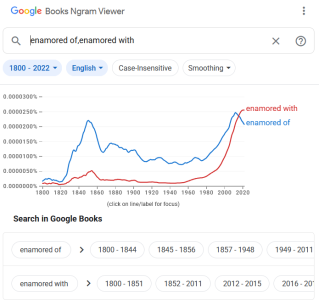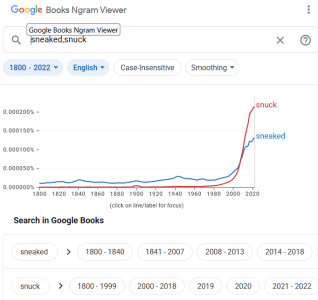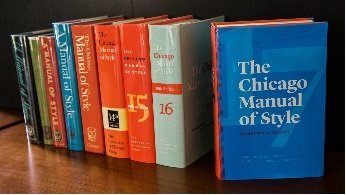Garner's Modern English Usage
The Ne plus ultra of references on usage and idiom in both British and American English. (There used to be separate editions, but they were reconciled and reunited.) Heir to the legendary Fowler's.
There's no online version, only print, Kindle, and app, but the same author's LawProse.org often comes up in searches and citations. If you obsess over nuances of meaning, or the preposition that bets fits an expression, then GMEU is for you.
This tome is one of my two favorite references anywhere. There's really no higher authority on usage today than American scholar, lawyer, and polymath Bryan Garner. He's prescriptive but empirical, and maintains an index of language change showing how a word, phrase, or meaning gradually gets corrupted into another. Unlike oncologists with their four stages, he propounds five, with the fifth being a grudging but essentially cheerful "lost cause." (I suppose oncologists have a fifth stage as well. They just don't like to talk about it.)
I have this as both e-book and paper book. If I'm in a hurry to look something up, I use my Kindle. But I sometimes just sit down with the paper version to flip through and see what gems I encounter. It's profoundly validating to receive such backup for many of my arcane opinions and pronouncements, but also great fun to discover the occasional surprise where I've absorbed something wrong over the years.
The American Heritage Dictionary of the English Language: Fifth Edition
Print, Kindle or online at AH Dictionary . com for a quick look-up.
My second-favorite authority.
Originally published as a counterbalance against the notoriously permissive (described in some quarters as catastrophic) 1965 Webster's Third New International Dictionary, the AHD is unapologetically prescriptive, unlike the descriptive M-W dictionary—about which some claim that a word or phrase need only be misused once in an essay by some freshman anywhere for M-W to bless the mistake as legitimate evolution and include a sense documenting it.
One of the AHD's most satisfying features is its many discussions of contested usage. Until early 2018, the AHD maintained a Usage Panel of prominent scholars and writers, who voted on the legitimacy of "emerging" or contested usages for a given word. The Dictionary often discusses panelists' positions at considerable length.
Is "may" legitimate as a simple past form, or is its use that way a revealing subcultural tic? What about the lingering controversy over "conjunctive like"—Winston tastes good like a cigarette should? Is "disinterested" a stronger form of uninterested, or should it be reserved for impartiality? Is "enormity" an acceptable synonym for enormousness? These and so many other issues have Usage Panel discussions in the AHD. It's another tome that true wordsmiths can spend an entire afternoon leafing through just to find and enjoy the Usage Panel verdicts. (But they're not simple up-or-down judgments. The consensus and usually the percentages are reported, but each mini-controversy is presented from both sides, so that we understand why each side thinks as they do.)
Google Ngrams
The basic link is:
Google Books Ngram Viewer
The input is case sensitive and lets you compare the frequency of phrases up to five words. You can specify a time period and a corpus.
Want to know if the idiom is "enamored of" or the recently predominating "enamored with"?
There's an Ngram for that. (Just type enamored of,enamored with at the prompt.)

Want to know if other prepositions have been used in edited text over the last few hundred years?
There another Ngram for that. (Just type enamored * at the prompt.)
Want to know the relative frequency of "sneaked" and "snuck"?
There's another Ngram for that. (Just type sneaked, snuck at the prompt.)
The Hodges Harbrace Handbook
Print or Kindle. Ridiculously expensive because it's THE UNIVERSITY STANDARD.
Nobody's favorite, but legendary. Probably the most-sold reference on grammar, punctuation, citation, and much else, this book and its predecessor editions have ruled over generations of Freshman Composition classes. Some instructors are so committed to it that they may write nothing more than an HHH rule number next to an item in a hapless student's submission, so thoroughly familiar do they expect their students to become with the handbook's dicta.
Grammatically Correct (Anne Stilman)
Print or Kindle.
So much easier to like, Stilman's excellent contribution to the subject is pleasantly conversational while reasonably comprehensive for a book of its length.
One of her memorable observations is that there are many places in speech where we pause or inflect a bit, but do NOT properly place a comma in writing.
The Elements of Style
Oh, please.
No, yes, we actually must.
There's a reason this is last in my list. Also known simply as "Strunk and White" after its authorship, this work is distinctly NOT one of my favorites, but if I don't put it here, someone else inevitably will. I'm not sure I'd go so far as to call it a disfavorite, but it feels haphazardly written and is full of at best half-wisdoms. It has been contentious almost since its publication. It's a favorite of business writers, probably its most legitimate target audience.
However (ahem), the point of these posts is not to reach or direct a verdict on any of the cited works, merely to point out that someone finds them useful.
Such a provocative lead-in requires justification. I'll let Geoffrey Pullum make the case for the prosecution in Land of the Free and The Elements of Style. Those who do not appreciate his point of view may take mean pleasure in noticing that his very first sentence misspells "vise-like grip on educated Americans' views" with "vice" where it should read "vise." Where is American Heritage's Usage Panel when you need them? Some dictionaries now bless "vice" in that sense, though it began as a corruption. Also, Brits generally appear to be confused on this point.
The Ne plus ultra of references on usage and idiom in both British and American English. (There used to be separate editions, but they were reconciled and reunited.) Heir to the legendary Fowler's.
There's no online version, only print, Kindle, and app, but the same author's LawProse.org often comes up in searches and citations. If you obsess over nuances of meaning, or the preposition that bets fits an expression, then GMEU is for you.
This tome is one of my two favorite references anywhere. There's really no higher authority on usage today than American scholar, lawyer, and polymath Bryan Garner. He's prescriptive but empirical, and maintains an index of language change showing how a word, phrase, or meaning gradually gets corrupted into another. Unlike oncologists with their four stages, he propounds five, with the fifth being a grudging but essentially cheerful "lost cause." (I suppose oncologists have a fifth stage as well. They just don't like to talk about it.)
I have this as both e-book and paper book. If I'm in a hurry to look something up, I use my Kindle. But I sometimes just sit down with the paper version to flip through and see what gems I encounter. It's profoundly validating to receive such backup for many of my arcane opinions and pronouncements, but also great fun to discover the occasional surprise where I've absorbed something wrong over the years.
The American Heritage Dictionary of the English Language: Fifth Edition
Print, Kindle or online at AH Dictionary . com for a quick look-up.
My second-favorite authority.
Originally published as a counterbalance against the notoriously permissive (described in some quarters as catastrophic) 1965 Webster's Third New International Dictionary, the AHD is unapologetically prescriptive, unlike the descriptive M-W dictionary—about which some claim that a word or phrase need only be misused once in an essay by some freshman anywhere for M-W to bless the mistake as legitimate evolution and include a sense documenting it.
One of the AHD's most satisfying features is its many discussions of contested usage. Until early 2018, the AHD maintained a Usage Panel of prominent scholars and writers, who voted on the legitimacy of "emerging" or contested usages for a given word. The Dictionary often discusses panelists' positions at considerable length.
Is "may" legitimate as a simple past form, or is its use that way a revealing subcultural tic? What about the lingering controversy over "conjunctive like"—Winston tastes good like a cigarette should? Is "disinterested" a stronger form of uninterested, or should it be reserved for impartiality? Is "enormity" an acceptable synonym for enormousness? These and so many other issues have Usage Panel discussions in the AHD. It's another tome that true wordsmiths can spend an entire afternoon leafing through just to find and enjoy the Usage Panel verdicts. (But they're not simple up-or-down judgments. The consensus and usually the percentages are reported, but each mini-controversy is presented from both sides, so that we understand why each side thinks as they do.)
Google Ngrams
The basic link is:
Google Books Ngram Viewer
The input is case sensitive and lets you compare the frequency of phrases up to five words. You can specify a time period and a corpus.
Want to know if the idiom is "enamored of" or the recently predominating "enamored with"?
There's an Ngram for that. (Just type enamored of,enamored with at the prompt.)

Want to know if other prepositions have been used in edited text over the last few hundred years?
There another Ngram for that. (Just type enamored * at the prompt.)
Want to know the relative frequency of "sneaked" and "snuck"?
There's another Ngram for that. (Just type sneaked, snuck at the prompt.)
The Hodges Harbrace Handbook
Print or Kindle. Ridiculously expensive because it's THE UNIVERSITY STANDARD.
Nobody's favorite, but legendary. Probably the most-sold reference on grammar, punctuation, citation, and much else, this book and its predecessor editions have ruled over generations of Freshman Composition classes. Some instructors are so committed to it that they may write nothing more than an HHH rule number next to an item in a hapless student's submission, so thoroughly familiar do they expect their students to become with the handbook's dicta.
Grammatically Correct (Anne Stilman)
Print or Kindle.
So much easier to like, Stilman's excellent contribution to the subject is pleasantly conversational while reasonably comprehensive for a book of its length.
One of her memorable observations is that there are many places in speech where we pause or inflect a bit, but do NOT properly place a comma in writing.
The Elements of Style
Oh, please.
No, yes, we actually must.
There's a reason this is last in my list. Also known simply as "Strunk and White" after its authorship, this work is distinctly NOT one of my favorites, but if I don't put it here, someone else inevitably will. I'm not sure I'd go so far as to call it a disfavorite, but it feels haphazardly written and is full of at best half-wisdoms. It has been contentious almost since its publication. It's a favorite of business writers, probably its most legitimate target audience.
However (ahem), the point of these posts is not to reach or direct a verdict on any of the cited works, merely to point out that someone finds them useful.
Such a provocative lead-in requires justification. I'll let Geoffrey Pullum make the case for the prosecution in Land of the Free and The Elements of Style. Those who do not appreciate his point of view may take mean pleasure in noticing that his very first sentence misspells "vise-like grip on educated Americans' views" with "vice" where it should read "vise." Where is American Heritage's Usage Panel when you need them? Some dictionaries now bless "vice" in that sense, though it began as a corruption. Also, Brits generally appear to be confused on this point.
Attachments
Last edited:


